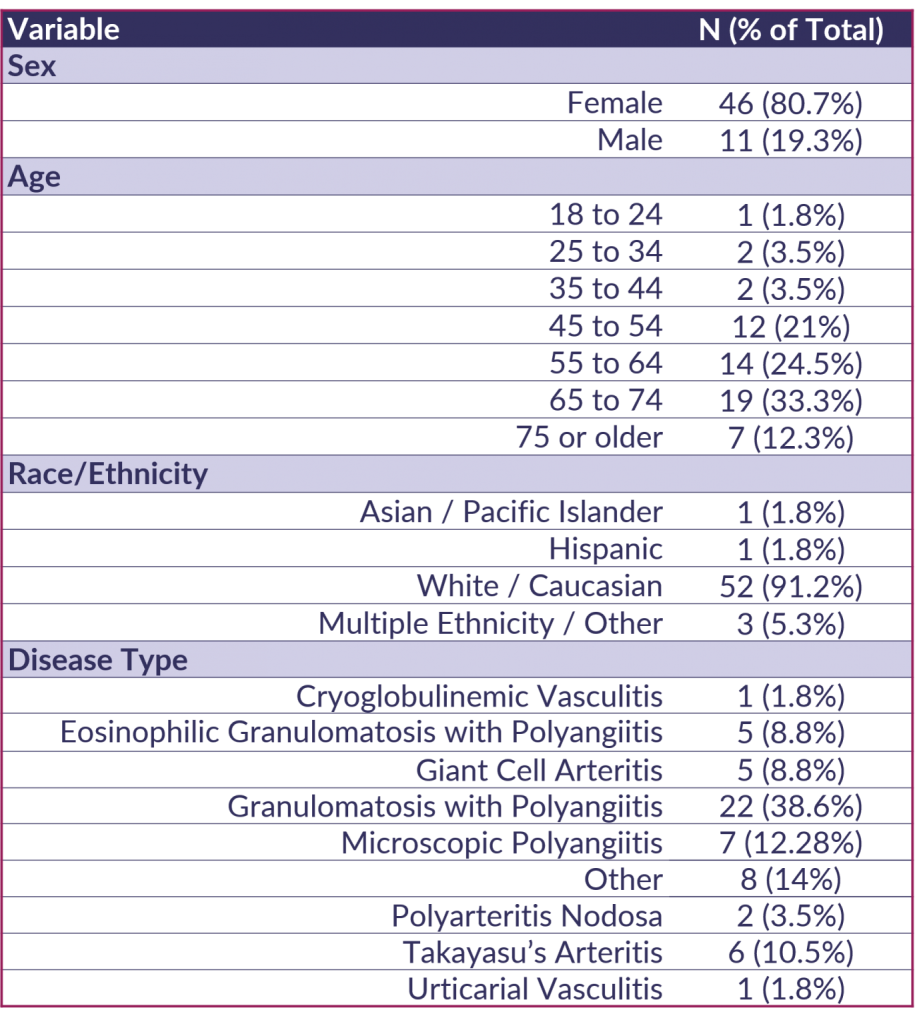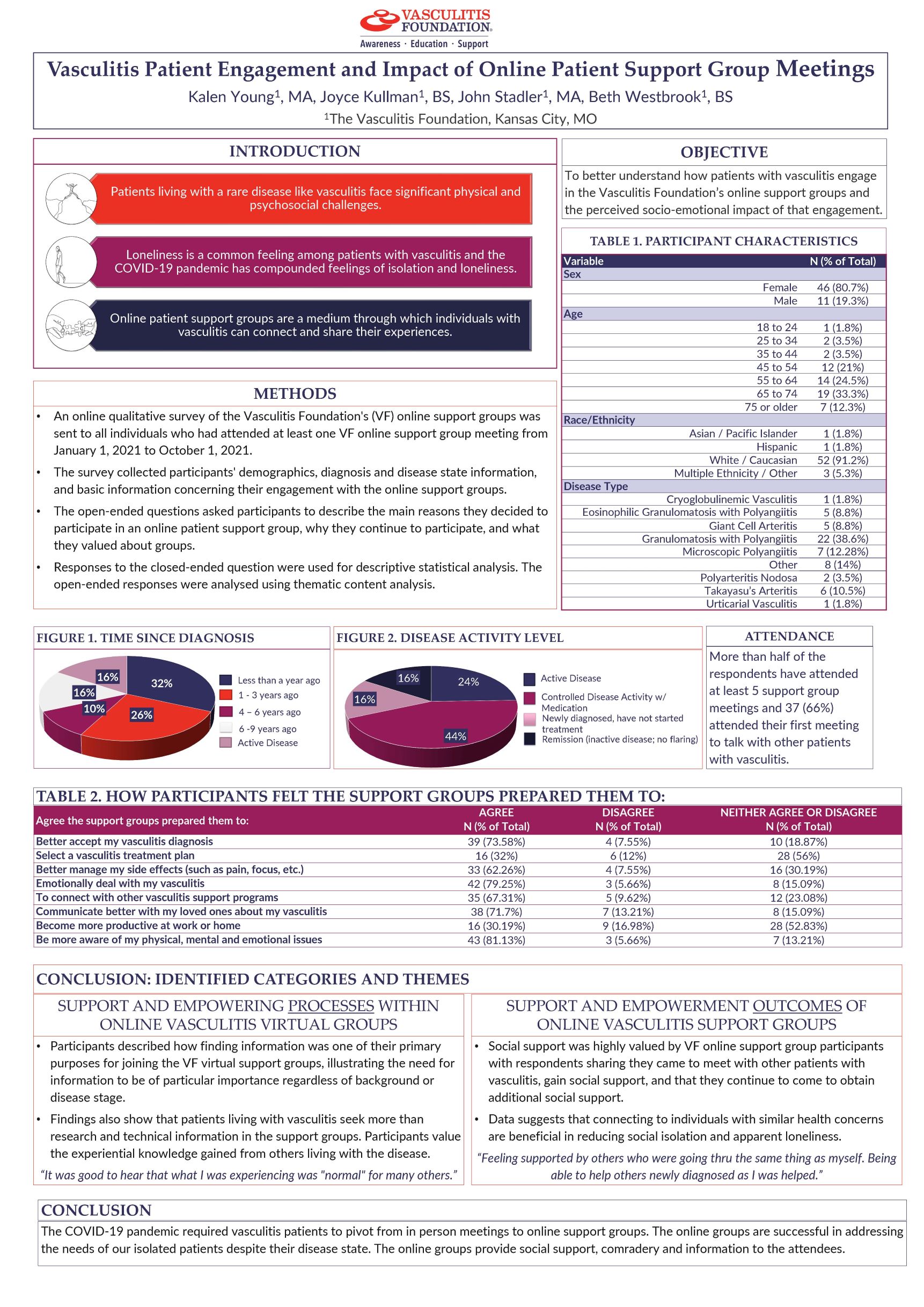Blog
Vasculitis Patient Engagement and Impact of Online Patient Support Group Meetings
Patients living with a rare disease like vasculitis face significant physical and psychosocial challenges. Loneliness is a common feeling among patients with vasculitis and the COVID-19 pandemic has compounded feelings of isolation and loneliness. Online patient support groups are a medium through which individuals with vasculitis can connect and share their experiences. The Vasculitis Foundation established weekly online patient support groups in 2020 for patients with any form of vasculitis.
Objective:
This study was performed to better understand how patients with vasculitis engage in these online support groups and the perceived socio-emotional impact of that engagement.
Methods:
- An online qualitative survey of the Vasculitis Foundation’s (VF) online support groups was sent to all individuals who had attended at least one VF online support group meeting from January 1, 2021 to October 1, 2021.
- The survey collected participants’ demographics, diagnosis and disease state information, and basic information concerning their engagement with the online support groups.
- The open-ended questions asked participants to describe the main reasons they decided to participate in an online patient support group, why they continue to participate, and what they valued about groups.
- Responses to the closed-ended question were used for descriptive statistical analysis. The open-ended responses were analyzed using thematic content analysis.
Participant Characteristics
Support and empowering processes within online vasculitis virtual groups
- Participants described how finding information was one of their primary purposes for joining the VF virtual support groups, illustrating the need for information to be of particular importance regardless of background or disease stage.
- Findings also show that patients living with vasculitis seek more than research and technical information in the support groups. Participants value the experiential knowledge gained from others living with the disease.
“It was good to hear that what I was experiencing was “normal” for many others.”
Support and empowerment outcomes within online vasculitis virtual groups
- Social support was highly valued by VF online support group participants with respondents sharing they came to meet with other patients with vasculitis, gain social support, and that they continue to come to obtain additional social support.
- Data suggests that connecting to individuals with similar health concerns are beneficial in reducing social isolation and apparent loneliness.
“Feeling supported by others who were going thru the same thing as myself. Being able to help others newly diagnosed as I was helped.”
Attendance
More than half of the respondents have attended at least 5 support group meetings and 37 (66%) attended their first meeting to talk with other patients with vasculitis.



Results:
Of the respondents, 46 (80.70%) were females. Respondents ranged in age from 18 to over 75 with 33 (57.9%) between the ages of 55 to 74. Respondents represented 10 forms of vasculitis. Eighteen participants were diagnosed less than 1 year ago and 33 (57.9%) were diagnosed less than three years ago. More than half of the respondents have attended at least 5 support group meetings and 37 (66%) attended their first meeting to talk with other patients with vasculitis. The responses to the open-ended questions were conceptualized in the following themes: support and empowering
Conclusion:
The COVID-19 pandemic required vasculitis patients to pivot from in person meetings to online support groups. The online groups are successful in addressing the needs of our isolated patients despite their disease state. The online groups provide social support, comradery and information to the attendees.

